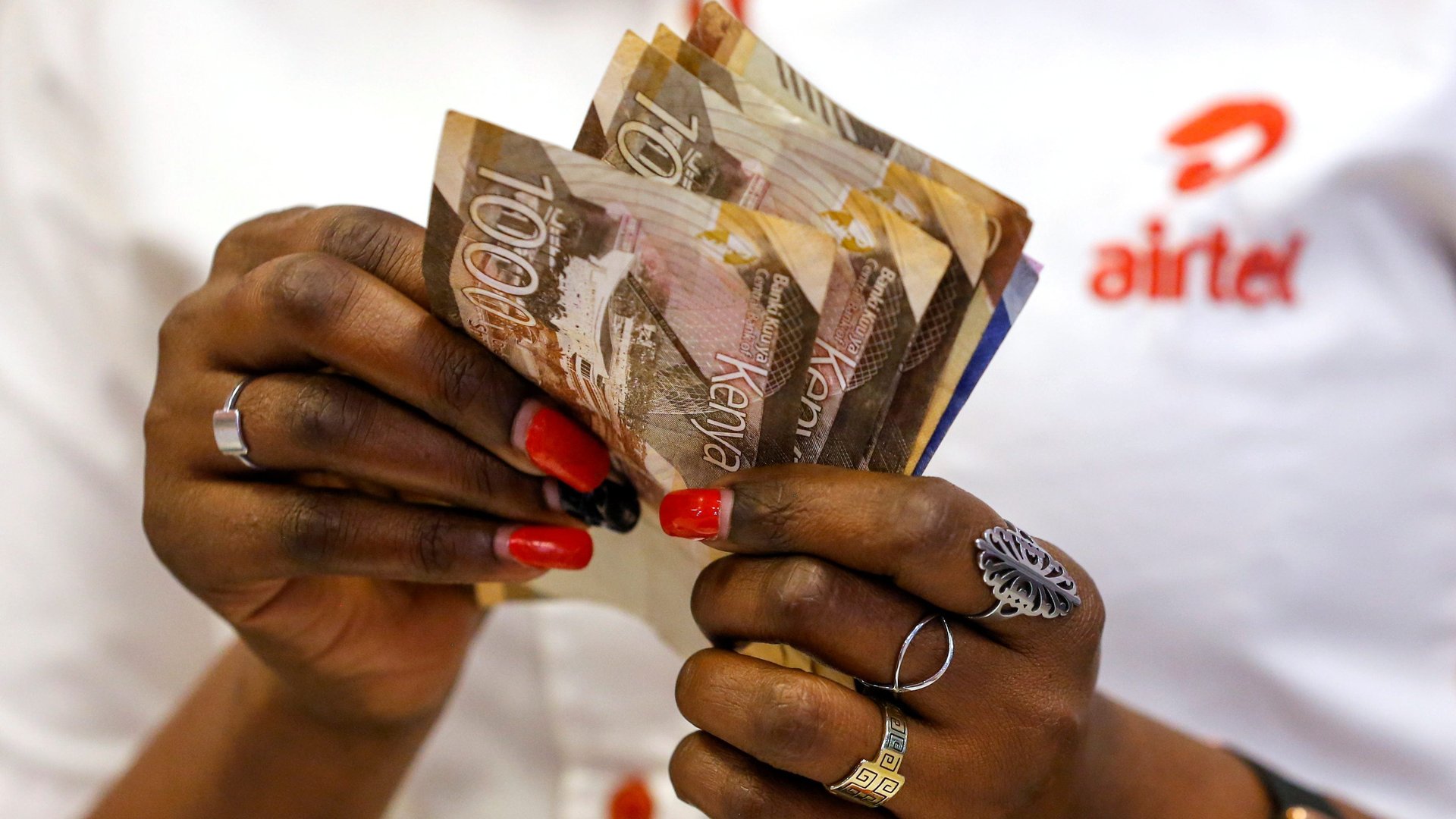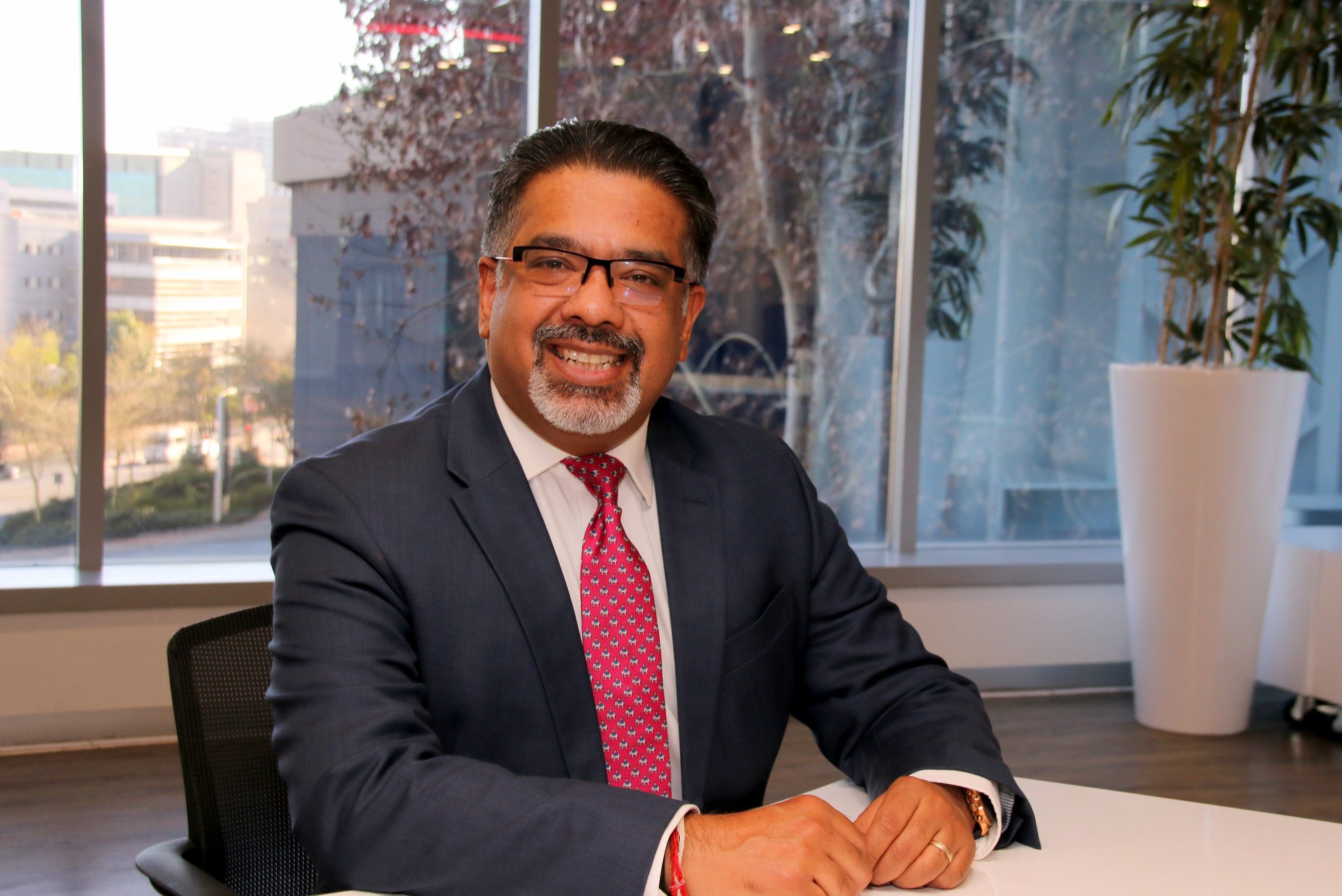Airtel Money Africa’s CEO explains its mobile payment spin-off from its telecom parent
Airtel Africa is spinning off its mobile money arm in a strategy that the service’s CEO, Vimal Kumar, says seeks “to unleash the power of mobile money.”


Airtel Africa is spinning off its mobile money arm in a strategy that the service’s CEO, Vimal Kumar, says seeks “to unleash the power of mobile money.”
Africa is the world leader in mobile money in many respects, and the rapid growth of mobile money in the continent has led telecom companies to discuss further unlocking their value by spinning off the services to become standalone financial entities.
The UK’s Vodafone Group Plc, which created M-Pesa with the Kenyan telco Safaricom, last year hinted it could spin off the mobile money service. Last May, Safaricom reported that its M-Pesa mobile money service had overtaken voice services to become its biggest revenue source for the year ended March 2020. Also last year, South Africa’s MTN Group said it is considering spinning off its financial services units, whose revenue increased by more than any other unit’s (pdf) for the quarter ended September 2021.
Airtel Africa is the first telco to follow through. The London-headquartered company has gotten standalone licenses for its mobile money services, which run under the “Airtel Money” brand, in 10 out of the 14 African countries it operates. It hopes to get the rest this year and then establish the spun-off entity.
The journey has been anything but smooth, as regulatory hurdles have held back the telco’s separation plan, Kumar told Quartz. “The growth rates in this business are limited by how much we are able to do collectively as an industry,” he said.
Quartz spoke with the CEO about the spin-off process, the covid-19 pandemic, expansion, opportunities, and what motivates him. The conversation has been edited for clarity.

Quartz: What role do spin-offs have in the future of the mobile money business?
Vimal Kumar: The business model is evolving. About 18 months back, we began this journey of separating our mobile financial services businesses in the operating companies from the GSM business (Global System for Mobile Communications, referring to the primary telecommunications business of data, calls, and SMS). This required mainly two things to be done. One is that we needed regulatory approval to do that, and the second is that we needed to also establish a relationship with the GSM business [in the countries where we operated], as there would be some shared services. So it’s not entirely cutting it off, but it’s separate, to unleash the power of mobile money, and to really begin to try with driving more successfully and in a more progressive manner.
That process of regulatory separation or getting a license, it’s obviously taken us some time. Different parts of Africa are at different stages of evolution. A lot of markets were not ready for this kind of a business model. About 75% of our operating companies are now on a standalone license. We are anticipating at least by end of this year, we should be able to establish a standalone entity.
The second part of this journey has been getting this entity valued. Through some investor interest, we picked up a valuation of about $2.65 billion for the Airtel Money business. In that process, we have offloaded some amount of the equity. We’ve raised about $500 million, and we’ve released just under 18% of our equity to really key, marquee investors.
The future’s extremely bright. The growth rates in this business are limited by how much we are able to do collectively as an industry.
Is Airtel Money planning to enter any new markets in the next few years?
At this point in time my playing field is really the 14 countries where we have a properly licensed telecom business. Despite the competitive nature of this business, despite so many fintechs, and so many homegrown companies that have begun to crowd the field, it is still very under-penetrated. So there is a lot of opportunity to really build more density in these markets before you want to go and spread yourself [to] new geographies. This is not to say that we are not interested. As the regulations open up and if there are markets where they welcome a white-label mobile money business, which it is like a marketplace or a platform, we would be very very keen to explore that opportunity.
What are some of the regulatory enablers and constraints you are facing?
Many years ago, this business was not well understood. But over a period of time regulators have begun to understand the role mobile money plays in a financial ecosystem in a country. They’re now very keen to ensure that this digital financial system that is building in each of the countries is well-grounded and well-protected. Our ability to have the use of the telecom KYC (“know your customer” process), for instance, to onboard a money customer is very helpful. So I don’t have to really repeat what has already been done while on-boarding the customer…the regulators have made it simpler.
We do face some challenges because not all African countries have a national ID for instance. So the documentation is not uniform, and people can produce all kinds of identity documents [which] does impact our ability to quickly onboard more customers. That’s one part.
Covid has helped regulators really understand the importance that mobile money is driving into Africa. They have begun to use the mobile money rails to really push a lot of social grants, which commercial banks are unable to do because they did not have that kind of reach.
And secondly, what covid has also done is that regulators have begun to encourage customers to be more digital than start using currency and queuing up in the branches and other places. They have increased the amount of transactions that can be done on the wallet, amount of money that a customer can hold on a wallet.
But on the flip side, what concerns me is because the mobile money business is growing so nicely, and it’s becoming a substantial part of every country’s economic system, there are some views around taxation that are emerging, and those views are becoming quite concerning. In Tanzania and neighboring [Uganda], the solidarity tax that they have imposed on the mobile money business, has dropped the [transaction] volumes by over 40%. I understand that there is always fiscal pressure to raise more taxes, but we have to do it in a manner where it does not hurt the industry.
What new opportunities does Airtel Money Africa still see mobile money in the continent?
As smartphone penetrations grow, and as data prices continue to come down, more customers self-migrate from the USSD platform to an app-based platform. There is so much opportunity therefore to bring a different environment. People loosely call it “super app”, but for me it is really creating a single interface for the customer to do everything that they want—it may be related with Airtel Money, it may not be related to Airtel money. It is bringing content, it is bringing lifestyle, it is bringing financial services—all these use cases together onto a single interface for the customer.
Number two is there is still a gray area around cryptocurrency [which] is not properly regulated. We don’t get a good view from our regulators on how they see it. I see a lot of use cases through blockchain and crypto that can potentially be future opportunities for us, as and when these regulations come out, and as and when governments are more comfortable with driving crypto in their individual markets.
The third is you’re seeing the emergence of central bank digital currencies. As that currency unfolds, I’m sure we will also see some opportunities for creating new use cases for our customers.
The big technology companies at some point in time are going to target Africa. As they land on the continent they will bring with them a lot of new technology that we can integrate with. They will require our distribution, [and] they will recognize that the rails of the mobile money entity will help them get to hundreds of millions of customers. So there is gonna be a natural affinity for us to work with them.
What keeps you up at night or gets you motivated to go to work every morning?
What keeps me up at night frankly is the risks that are emerging through cyber [crime]. We’re watching these trends quite closely. We’re investing a lot on the cyber side, but it still worries me, because this business is run on extremely, extremely thin margins, so we do not have the ability to take on massive fraud risk for instance.
The second I feel is there isn’t enough talent on the continent that understands the mobile money business, and especially the linkage between telcos and the mobile money business. And then the good guys are always under risk [of being] poached. I keep thinking all the time: “How do we nurture talent, how do we grow talent, and retain them?”
I think I’m in this company at the right time. All engines are firing. There’s so much of excitement, the future is digital payments. We are really right in the middle of it, and we’re growing this business nicely with exceptional returns.
Are there any new skills that are needed now in the sector that weren’t a few years ago?
I need people who have their ears close to the ground so we pick up customer insights. We don’t design things in our ivory towers. We design things around customer needs and [insights].
The second is everybody needs to be very tech-savvy. They need to understand the emerging technologies, they need to understand how to integrate a customer need into a technology-driven solution. The more tech-savvy, the more successful people are going to be. Because our business is entirely digital, and we’re converting a customer insight into a pure digital product, and using our distribution chain.
What are you reading for inspiration?
I’m reading this interesting book called Zero to One [by PayPal co-founder Peter Thiel]. Essentially he argues how you can not repeat the same success all the time—you have to find new ways of building successful businesses. For instance, he argues that there’s one Facebook, [and] another similar concept can never become that big. So if you have to really move the dial, the most difficult part is to move it from zero to one. It’s easy for people to move a business from two to three, but something that does not exist, to move it from that to make it something, is the big challenge.
Sign up to the Quartz Africa Weekly Brief here for news and analysis on African business, tech, and innovation in your inbox.